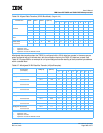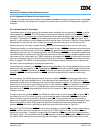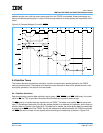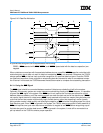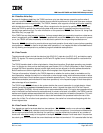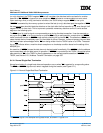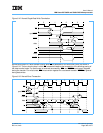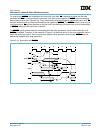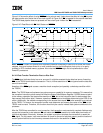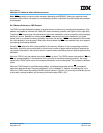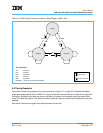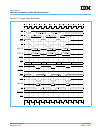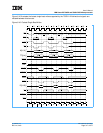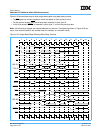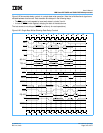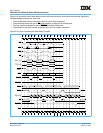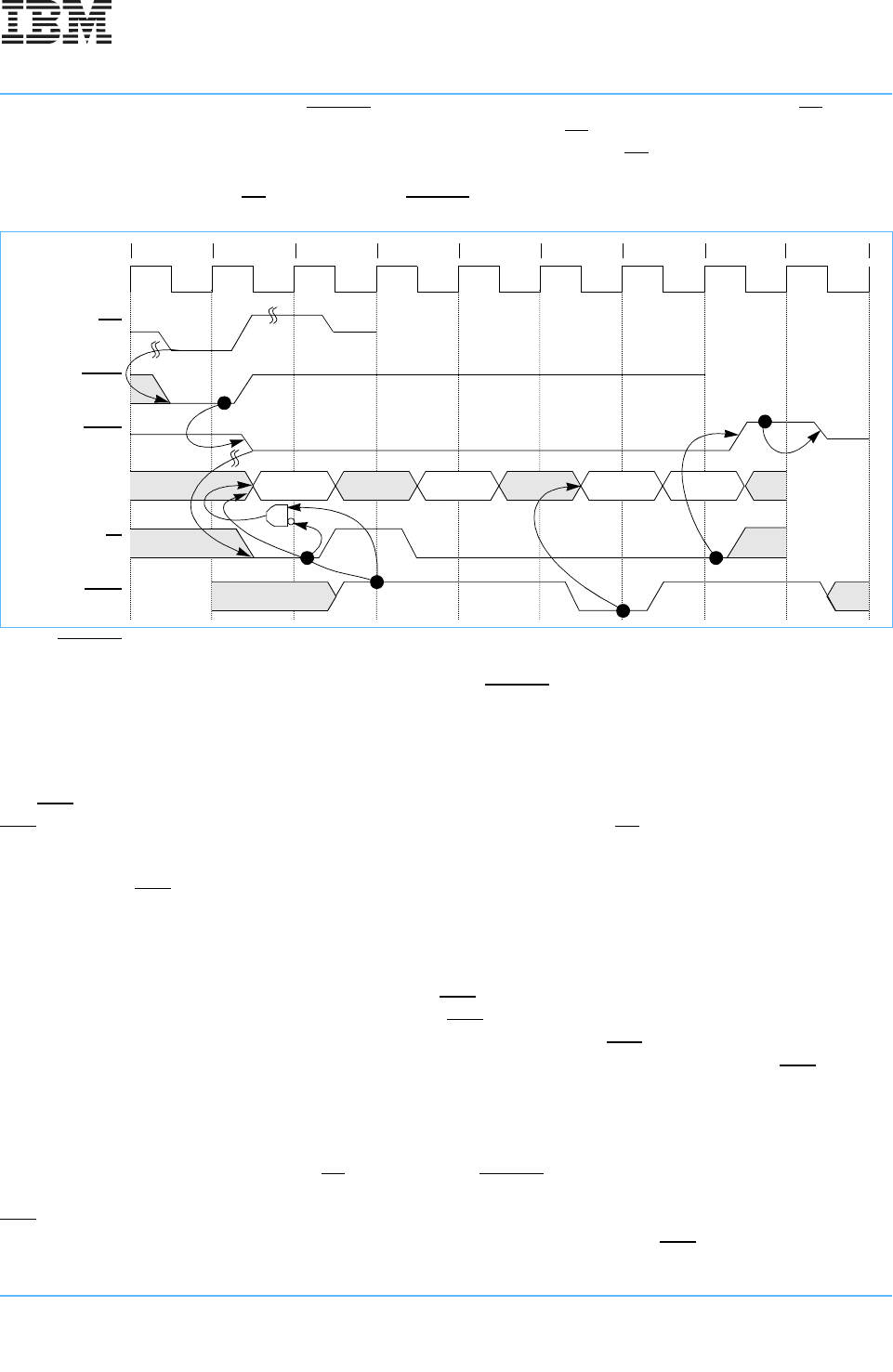
User’s Manual
IBM PowerPC 750GX and 750GL RISC Microprocessor
gx_08.fm.(1.2)
March 27, 2006
Bus Interface Operation
Page 307 of 377
Figure 8-15 shows the effect of using DRTRY during a burst read. It also shows the effect of using TA to pace
the data-transfer rate. Notice that in bus clock cycle 3 of Figure 8-15, TA
is negated for the second data beat.
The 750GX data pipeline does not proceed until bus clock cycle 4 when the TA
is reasserted.
Note: D
RTRY is useful for systems that implement predicted forwarding of data such as those with direct-
mapped, third-level caches where hit or miss is determined on the following bus clock cycle, or for parity-
checked or ECC-checked memory systems. Also note that DRTRY
might not be implemented on other
PowerPC processors.
8.4.4.2 Data-Transfer Termination Due to a Bus Error
The TEA
signal indicates that a bus error occurred. It might be asserted during data-bus tenure. Asserting
TEA
to the 750GX terminates the transaction. That is, further assertions of TA are ignored and the data-bus
tenure is terminated.
Assertion of the TEA
signal causes a machine-check exception (and possibly a checkstop condition within
the 750GX).
Note: The 750GX does not implement a synchronous error capability for memory accesses. This means that
the exception instruction pointer saved into Machine Status Save/Restore Register 0 (SRR0) does not point
to the memory operation that caused the assertion of TEA
, but to the instruction about to be executed (per-
haps several instructions later). However, assertion of TEA
does not invalidate data entering the GPR or the
cache. Additionally, the address corresponding to the access that caused TEA
to be asserted is not latched
by the 750GX. To recover, the exception handler must determine and remedy the cause of the TEA
, or the
750GX must be reset. Therefore, this function should only be used to indicate fatal system conditions to the
processor.
After the 750GX has committed to run a transaction, that transaction must eventually complete. Address retry
causes the transaction to be restarted. T
A wait states and DRTRY assertion for reads delay termination of
individual data beats. Eventually, however, the system must either terminate the transaction or assert the
TEA
signal. For this reason, care must be taken to check for the end of physical memory and the location of
certain system facilities to avoid memory accesses that result in the assertion of TEA
.
Figure 8-15. Read Burst with TA
Wait States and DRTRY
TS
qual DBG
DBB
data
ta
drtry
123456789



